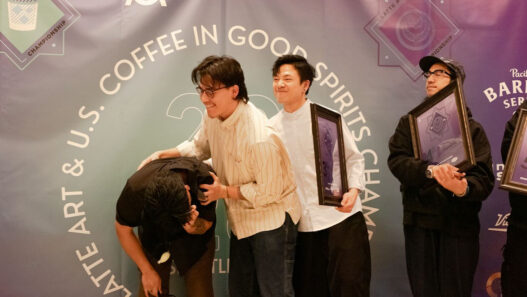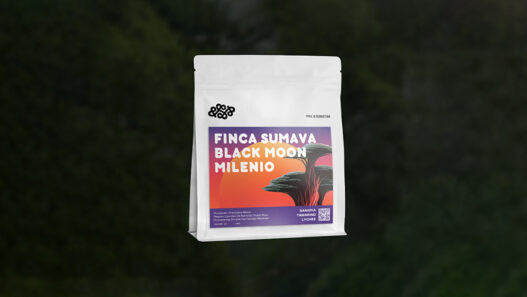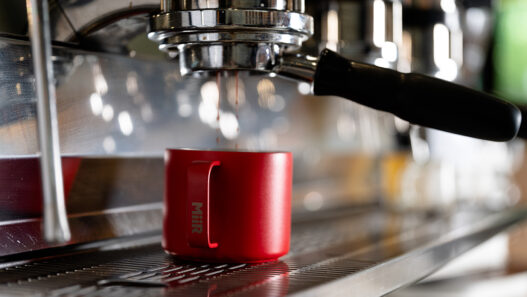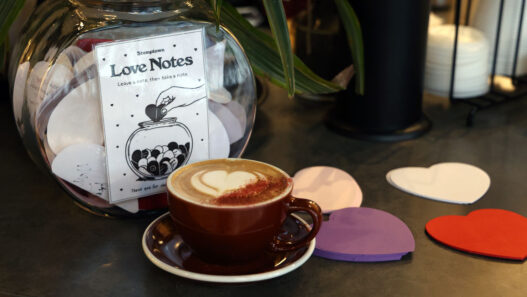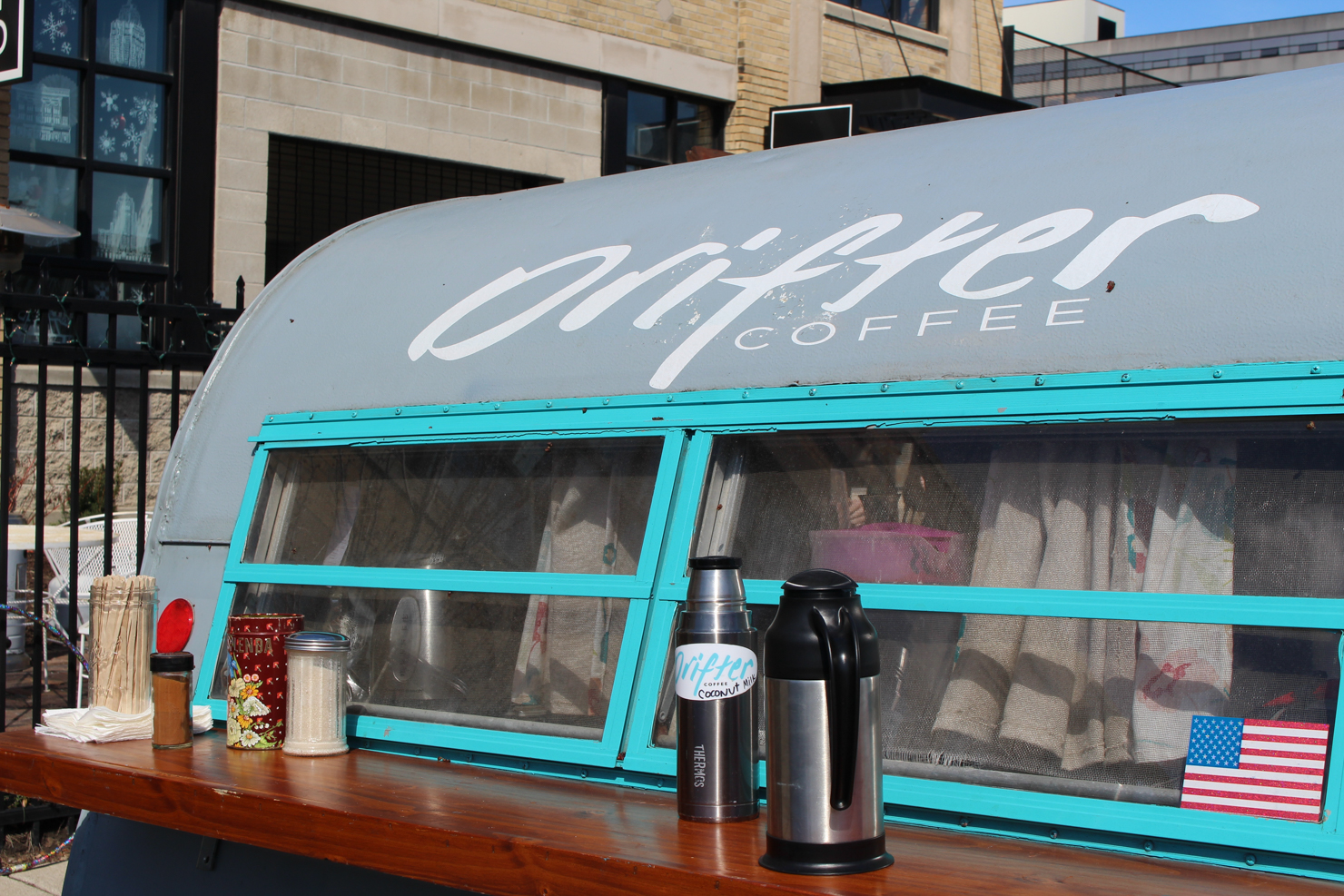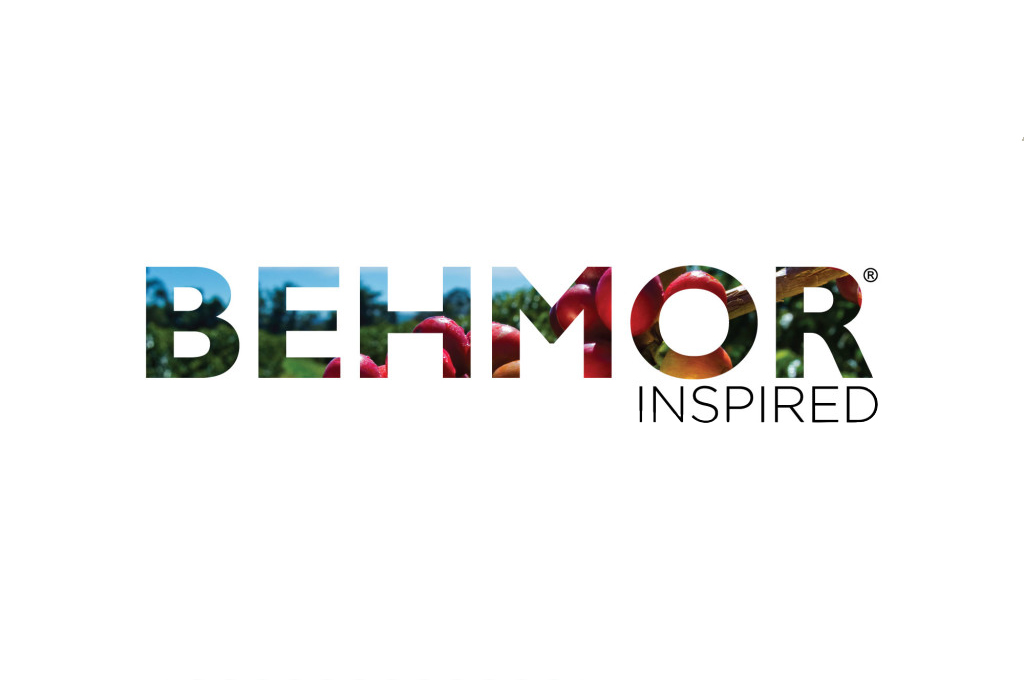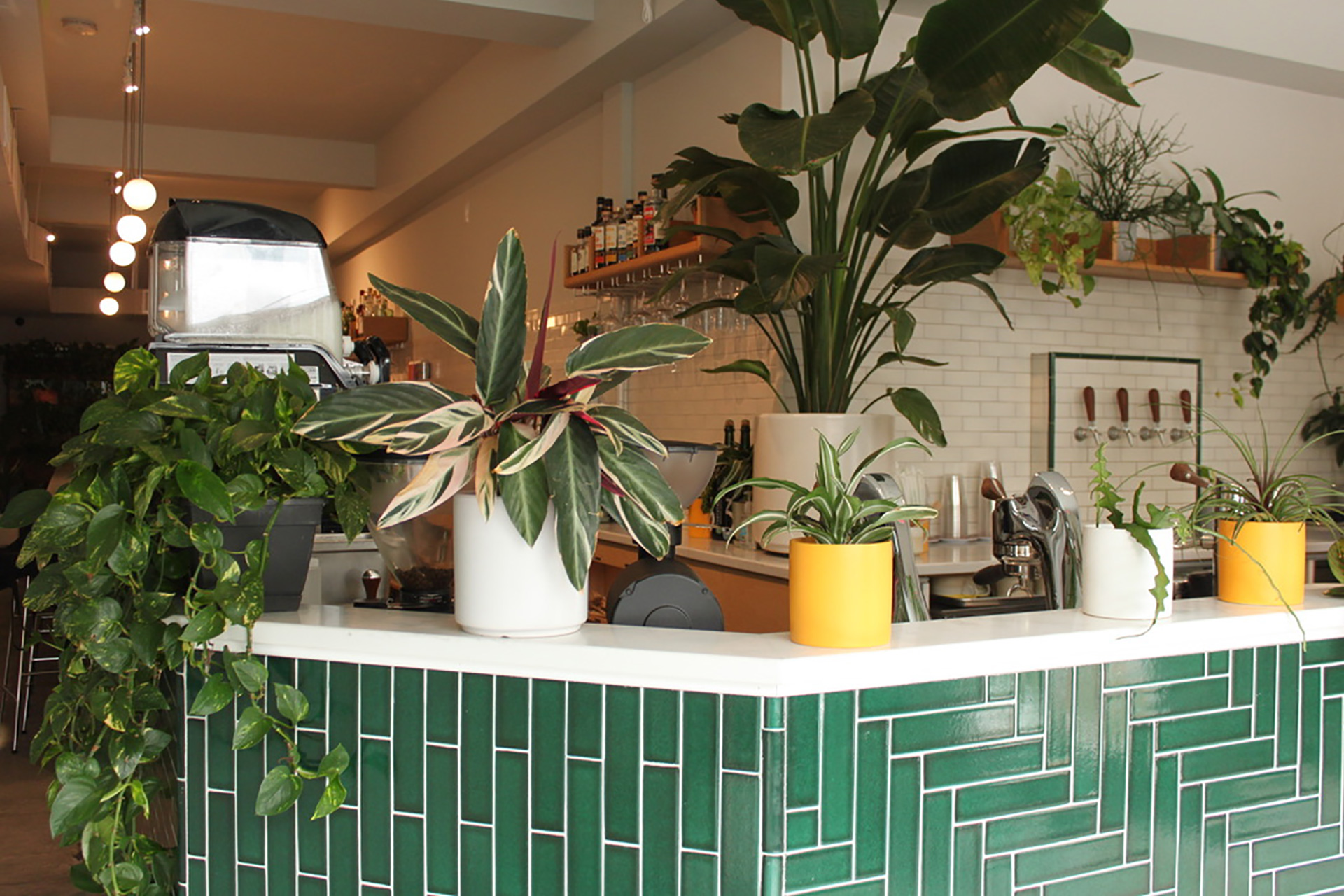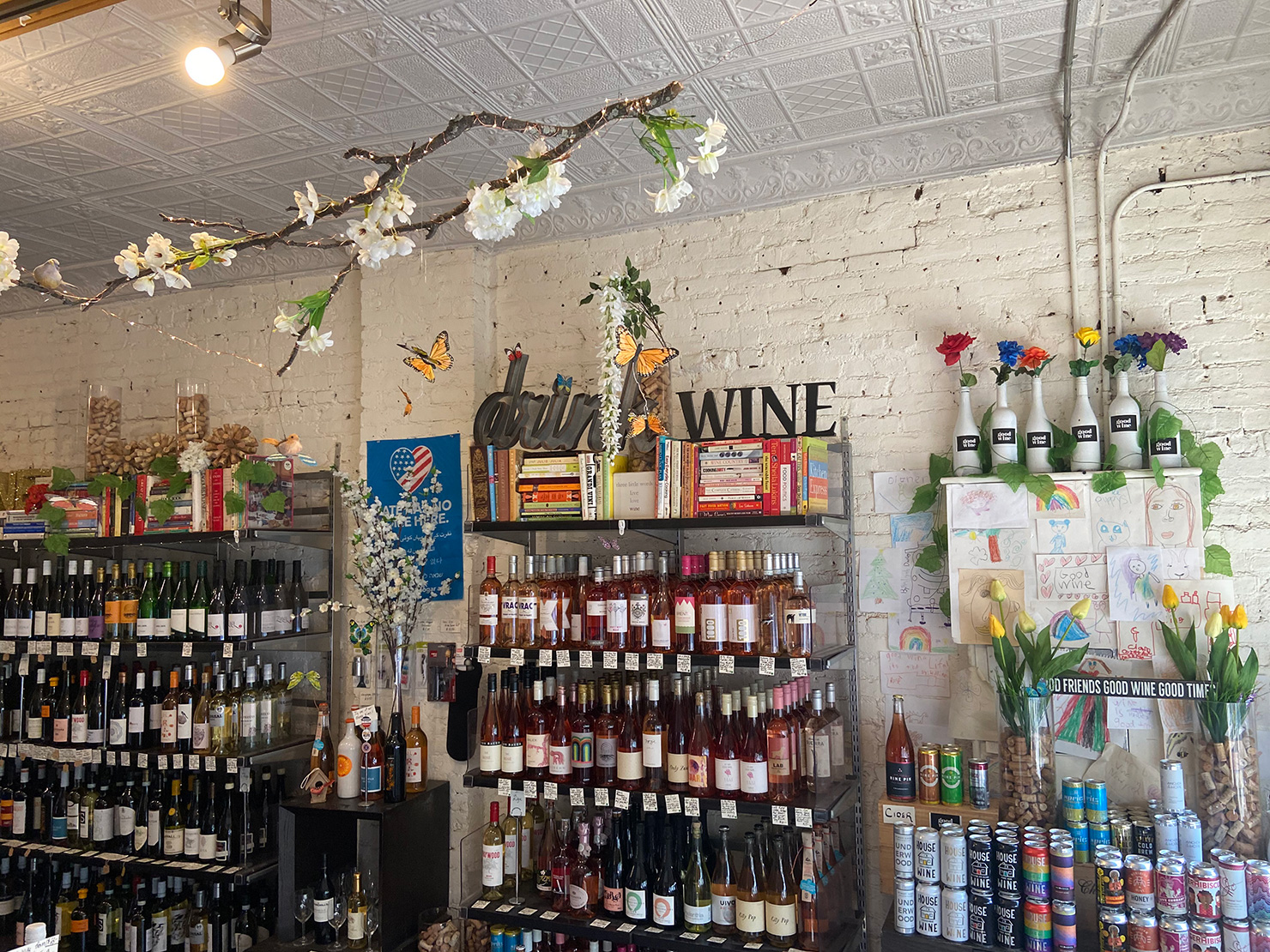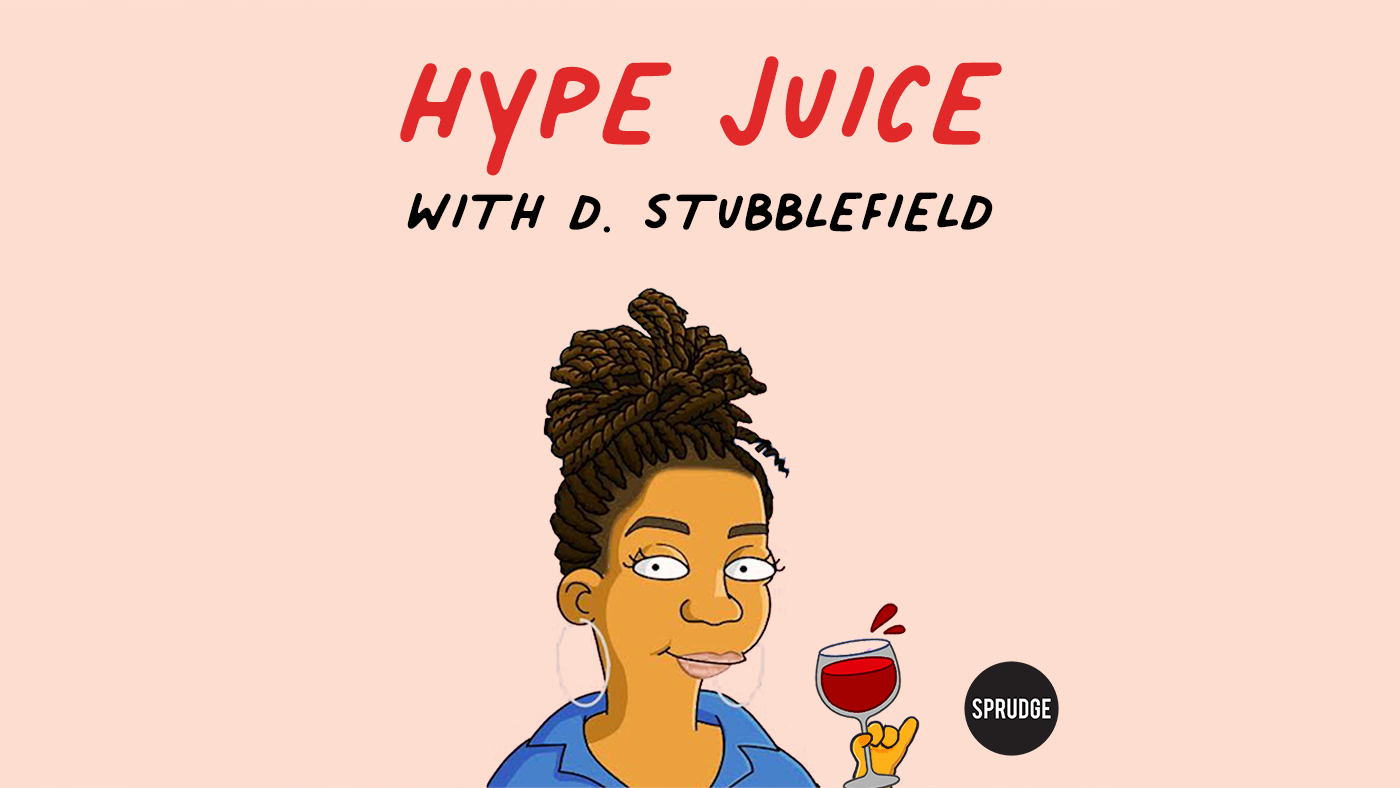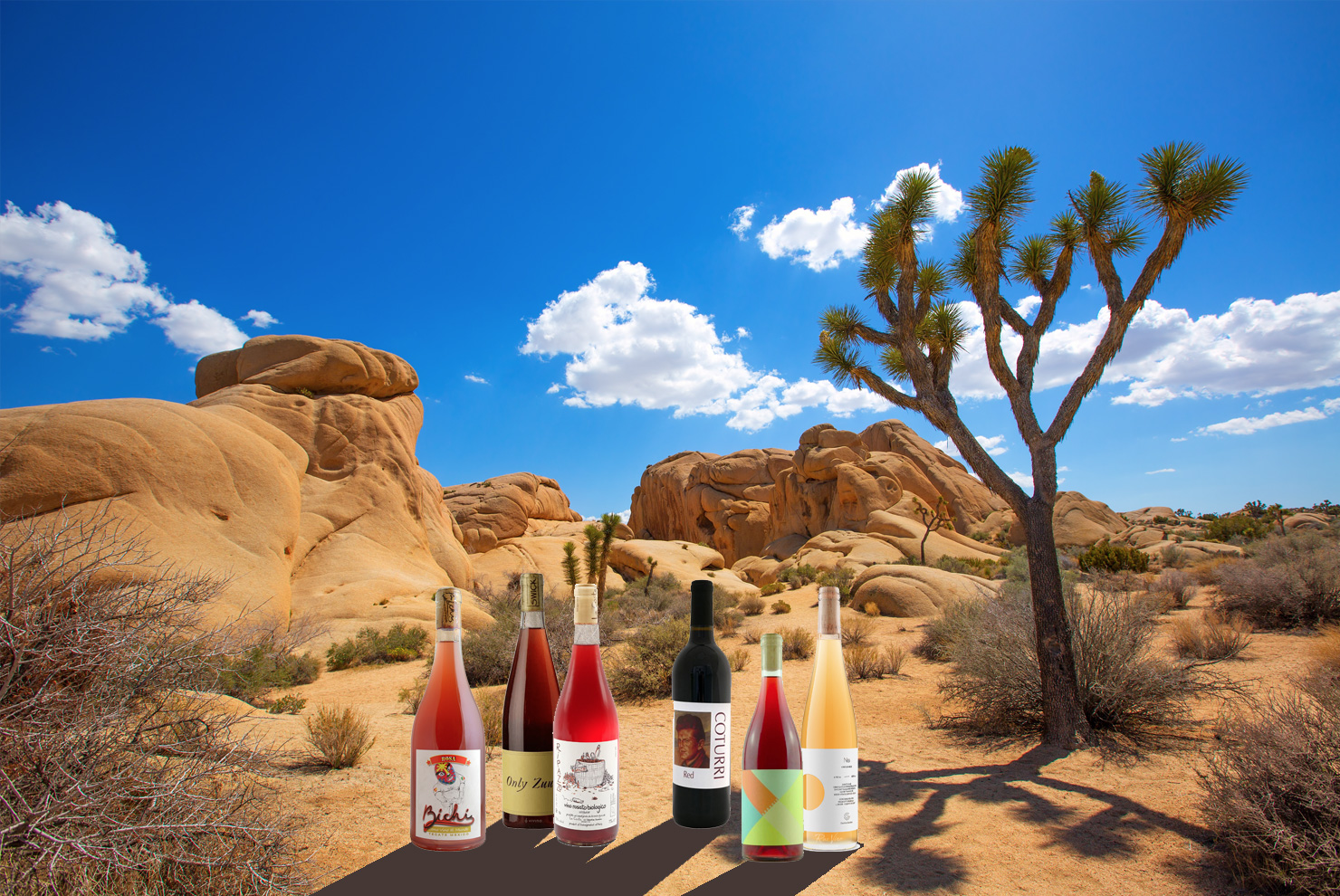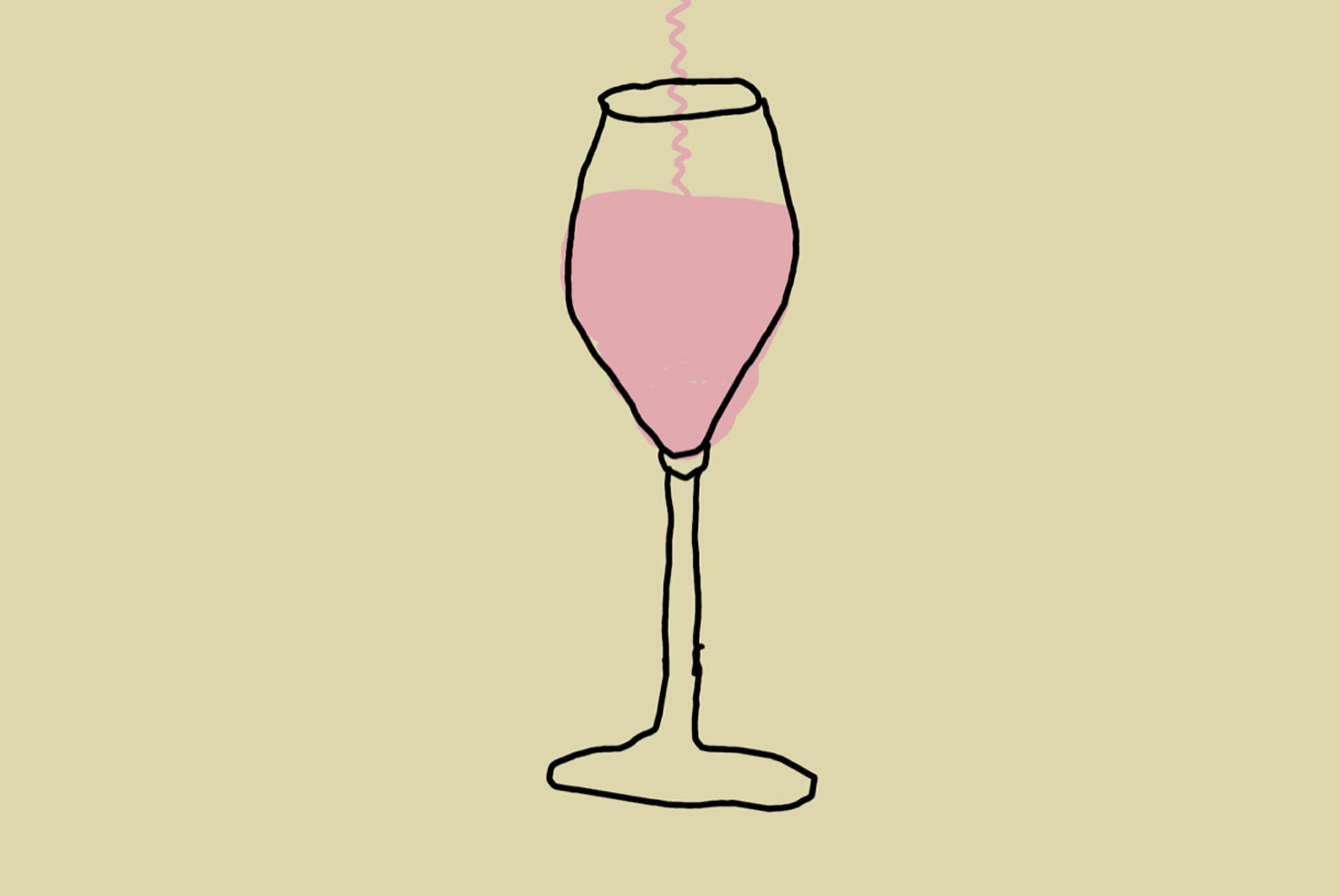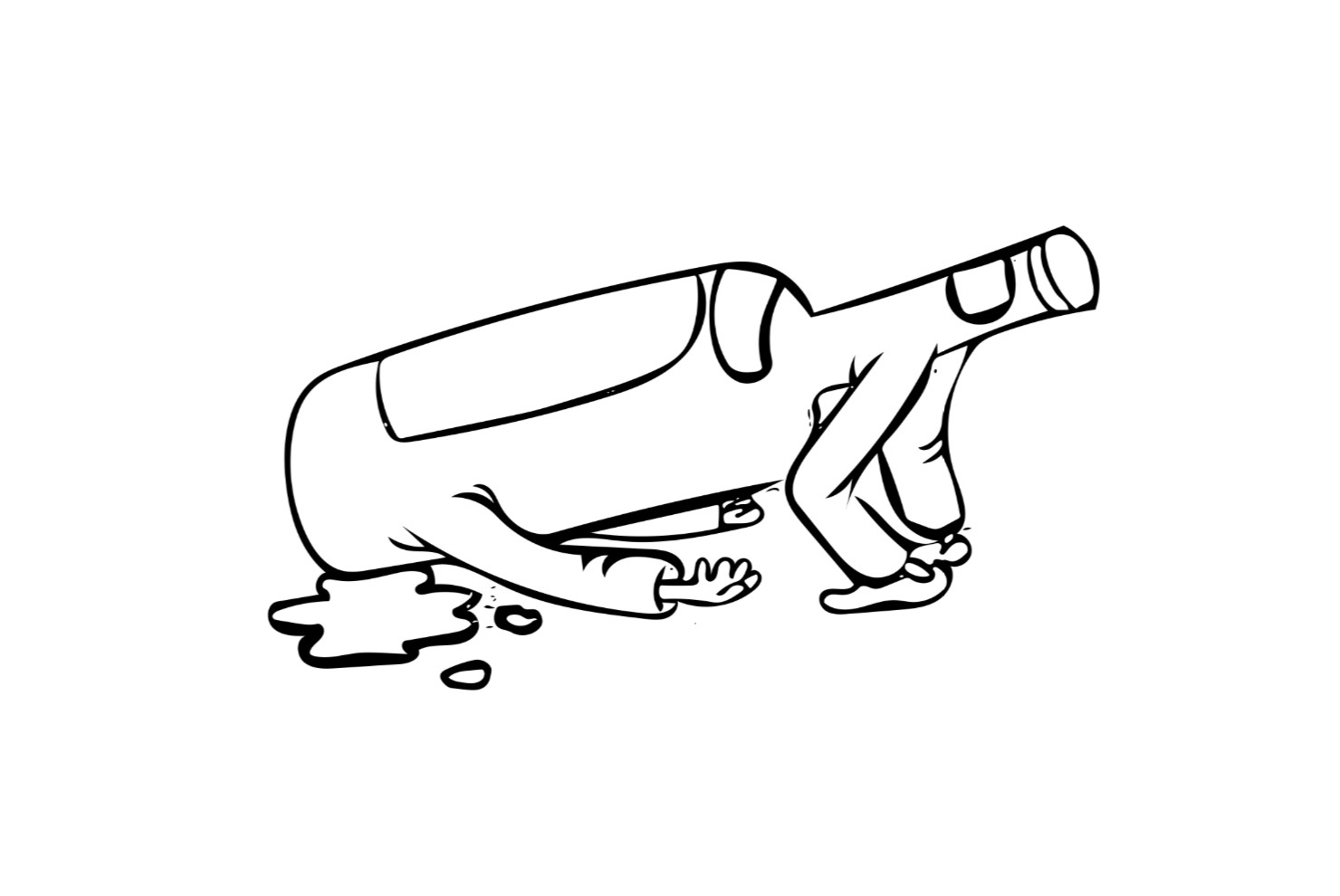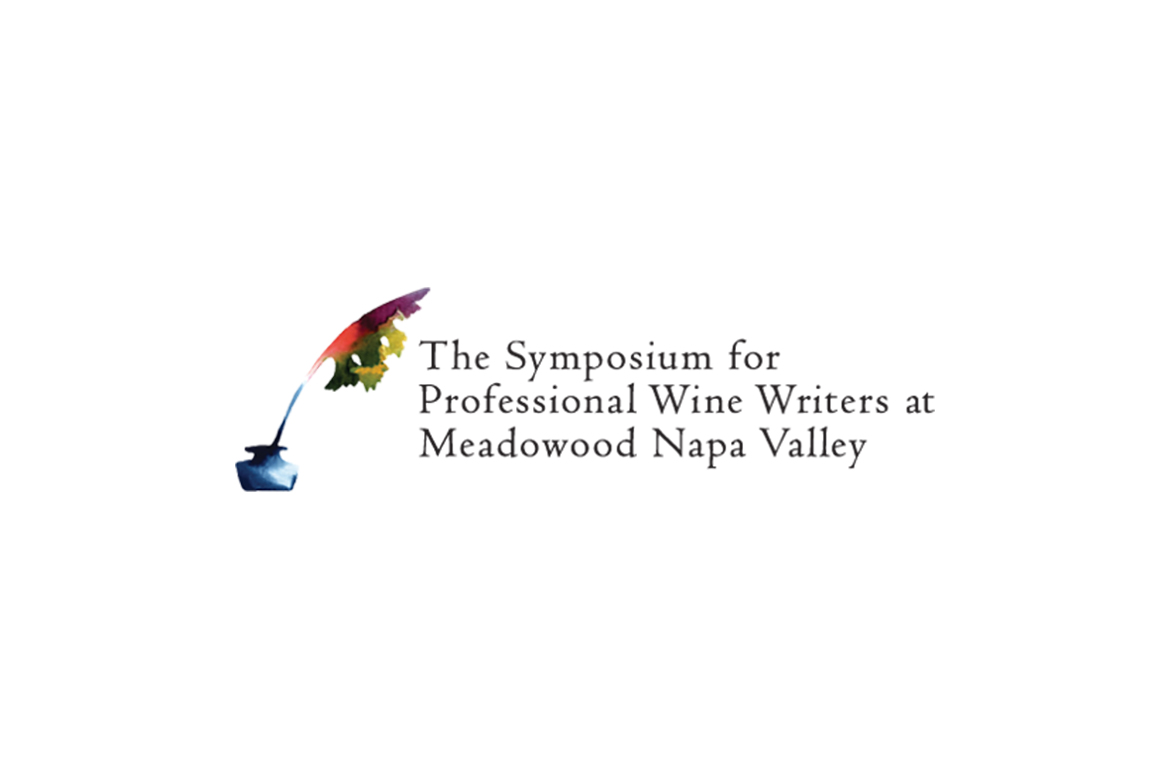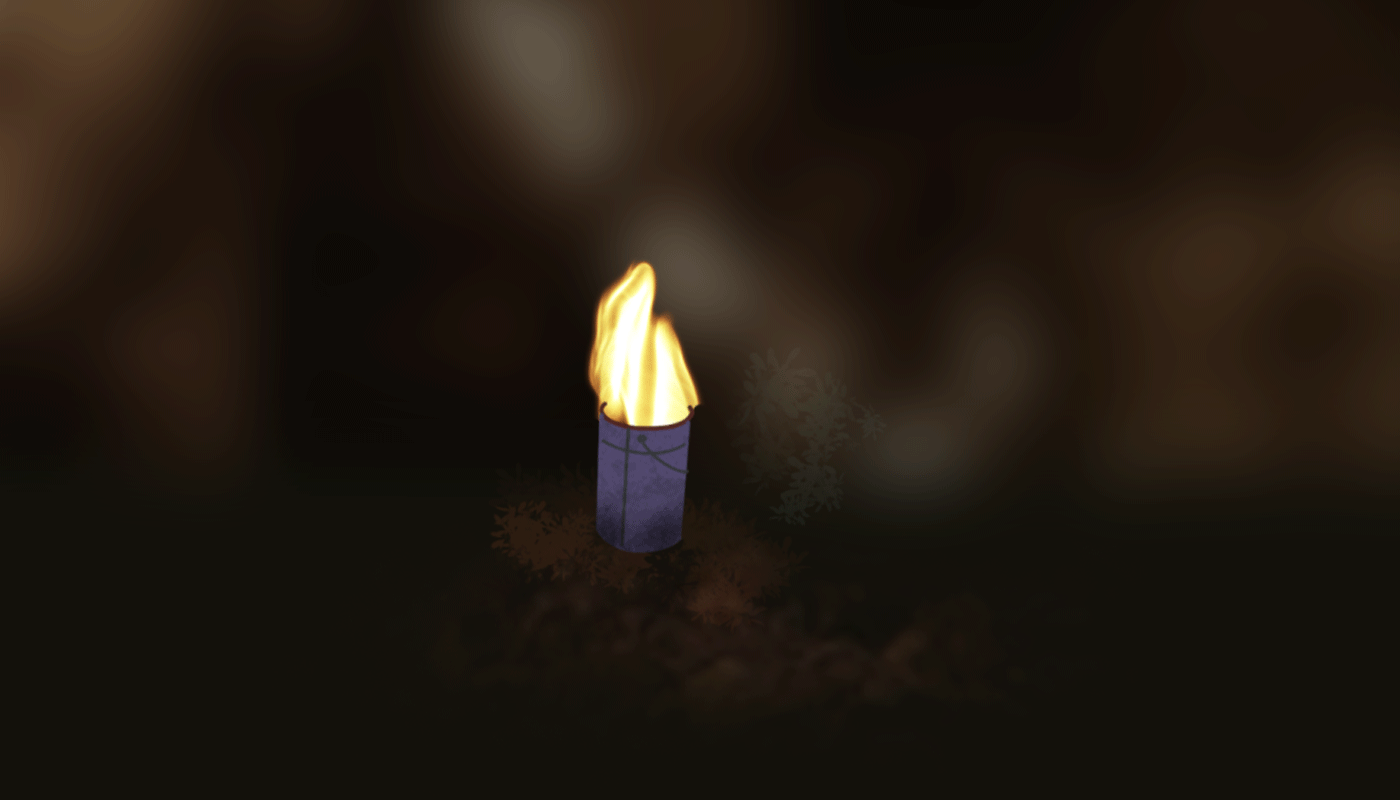I recently had the opportunity to interview Lou Amdur, the proprietor of Lou Wine Shop in the Los Angeles neighborhood of Los Feliz. Amdur is a great interview, as you’ll discover below, a Minneapolis native by way of New York City who peppers his conversations with sociology and philosophy concepts, and is as generously knowledgeable about wine as anyone you’ll meet.
But it’s what happens around the interview that I keep coming back to now in my memory, playing it over and over again as I try and frame exactly why this place is special, why it stands out among other wine shops, and why you should care. The interview itself happens inside Maru Coffee (Amdur loves coffee) just a block or so away from Lou Wine, over a rapid-fire hour of conversation. But the best stuff happened away from my laptop—it’s always this way—in the casual conversation going on between Lou and the street scene in Los Feliz. As we walk back from the cafe down Hillhurst, Amdur is gleefully distracted by a fluffy dog, and so we stop; then we stop as Lou chats up a regular crossing paths up the street; and we stop again to say hi to another regular, out for a stroller walk with his toddler daughter. “She loves my shop,” Amdur tells me, “because I’ve got the good air conditioning.”
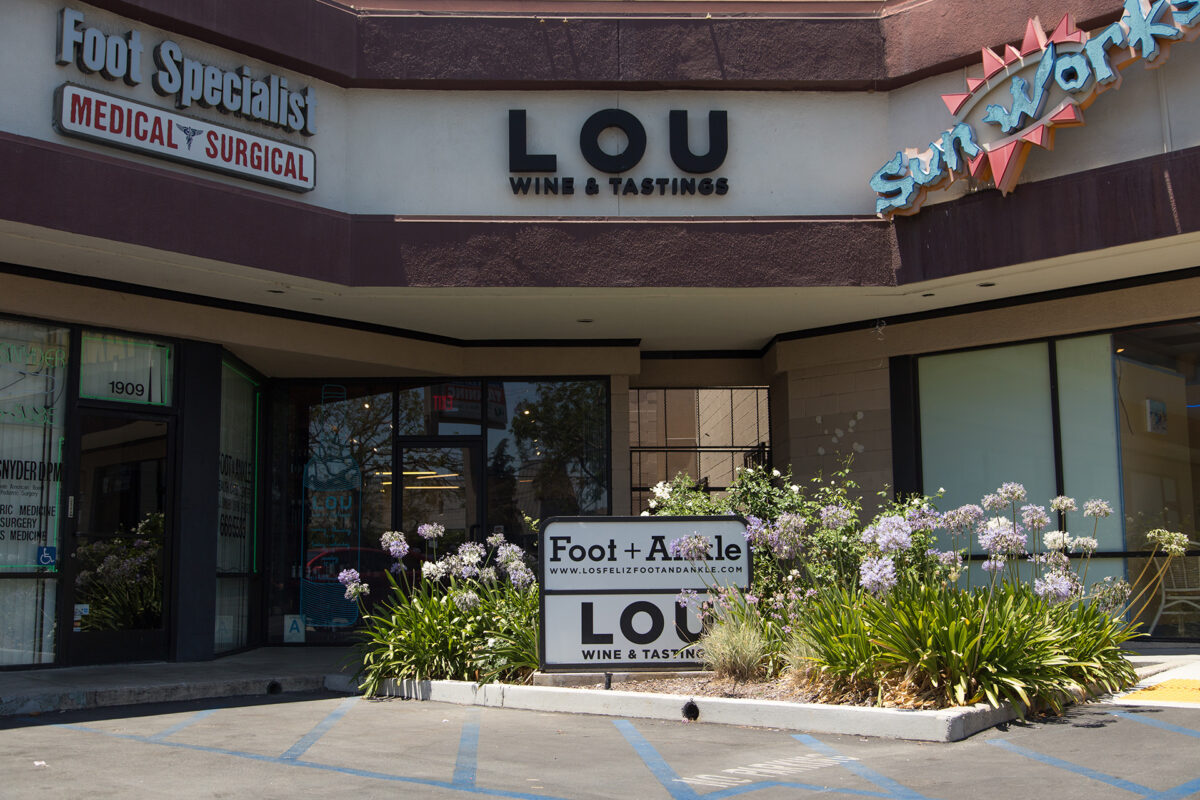
The a-ha moment happens here, away from the interview itself. The hook for this story is pretty simple: Lou Amdur is the vinous mayor of Los Feliz. There is an irresistible magnetism to how he approaches community that transcends the wider hang-ups we Americans have around wine, and it’s helped him build his shop into a dual threat: a neighborhood institution that is also a natural wine geek destination.
Lou Wine has an orbit, one that makes you feel lucky and grateful to be spinning around for a few revolutions. It’s a special place, and while the wine and conversation below with Amdur was an absolute privilege for me to have, it’s nothing compared to the chat and bottles waiting there for you.
This interview has been edited and condensed for clarity.
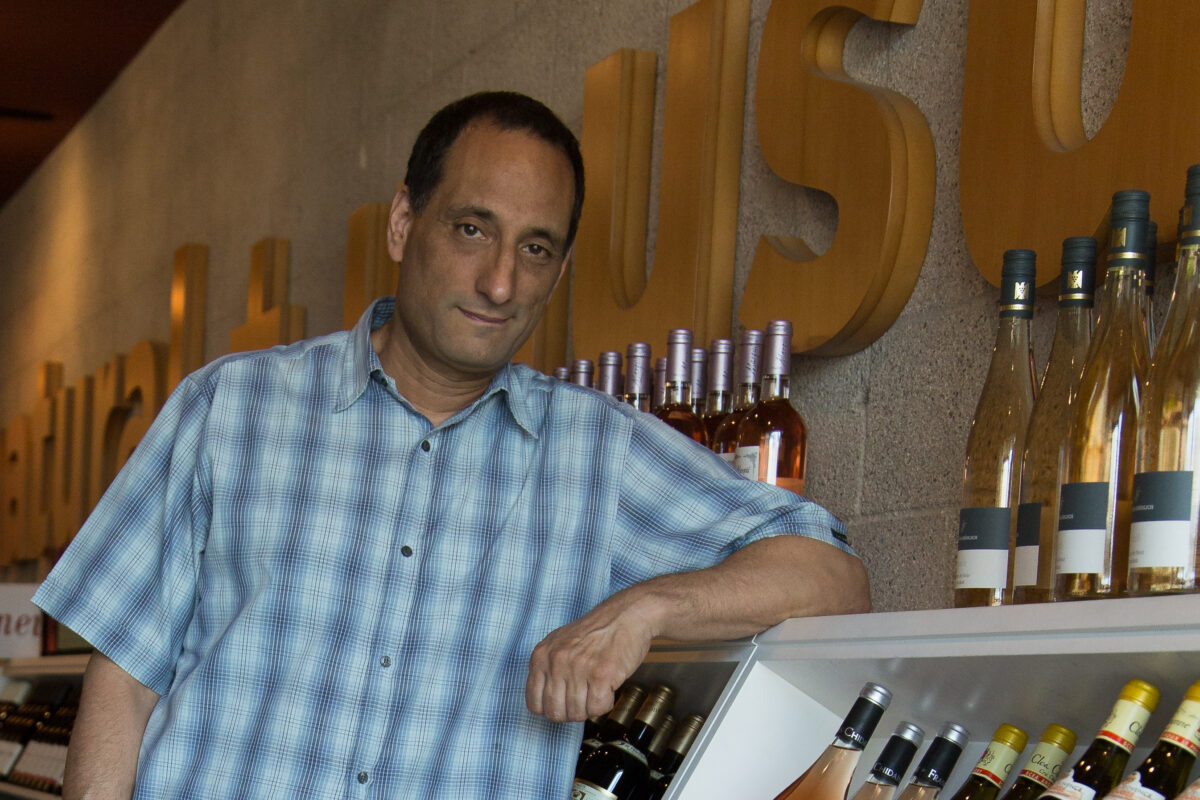
Hey Lou, thanks so much for talking with Sprudge Wine. How did you first get started in wine?
I worked in software for a long time, in New York and here, but I began to really fall for wine in the late 90s. I began to notice that I was bringing my wine books to work, and closing the door in my office and reading my wine books instead of coding.
After 9/11, I decided I didn’t want to do business travel anymore for stuff I wasn’t passionate about. Not to put a silver lining on a horrendous human event, but a lot of people evaluated what they were doing at that moment.
My wife and I were in Paris at a neighborhood wine bar and I realized there weren’t any in Los Angeles. And I thought, that’s a way to exit software and I had this fantasy that it would be a low barrier to entry. I thought the threshold was low. What I didn’t realize is that in Los Angeles to do a pure wine bar, at least at the time, was extremely challenging. If you’re not in a neighborhood that’s pedestrian-centric, they’re not gonna drive.
Where was the space? What was it called?
It was called Lou, actually, and it was on Vine in Hollywood. I loved that restaurant, but it didn’t work. After I sold the restaurant, having a shop was the next idea. It would help me bring my focus back to the wine. And that’s worked—although, you know, in any business there’s a lot of boring shit you have to do. A chunk of my life every week is recycling and sweeping and cleaning the bathrooms. I have no illusions about it being a posh lifestyle. But, yeah, there’s a lot more time to focus on wine. Although I miss having my restaurant, and I may do another one in the future.
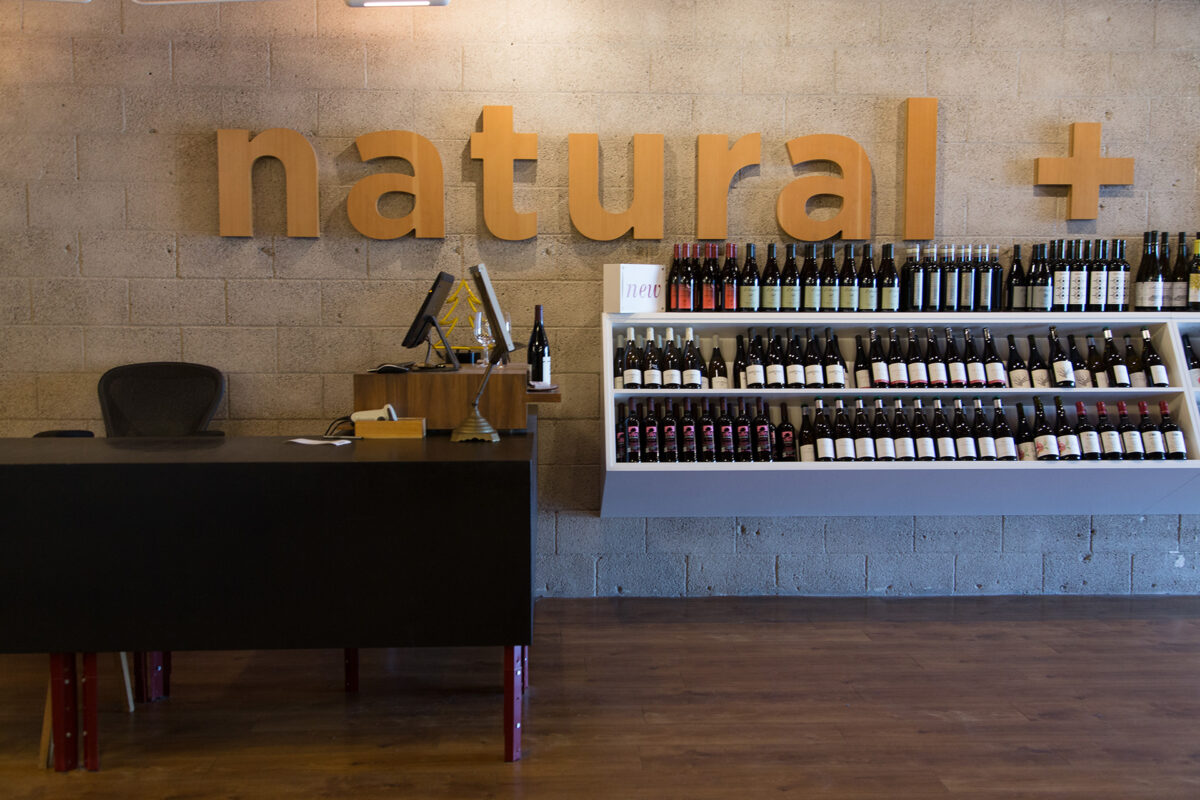
Do you consider Lou Wine to be “a natural wine shop”?
I’m not Taliban about it, but it’s important to me. Natural is something we look for. Not all the wines we sell are natural, though; a wine might be organically farmed but it’s not natural because it’s inoculated. There’s a range of these things in wine, and inoculation is the way down there. I think the most interesting wines are wild yeast fermented, but I eat bread. I eat bread all the time that has been inoculated with selected yeast and it’s delicious. I’m not angry at that bread. I don’t say it’s industrial bread. But it’s exciting to be in natural wine and I want to support folks who are making their wines in a traditional manner.
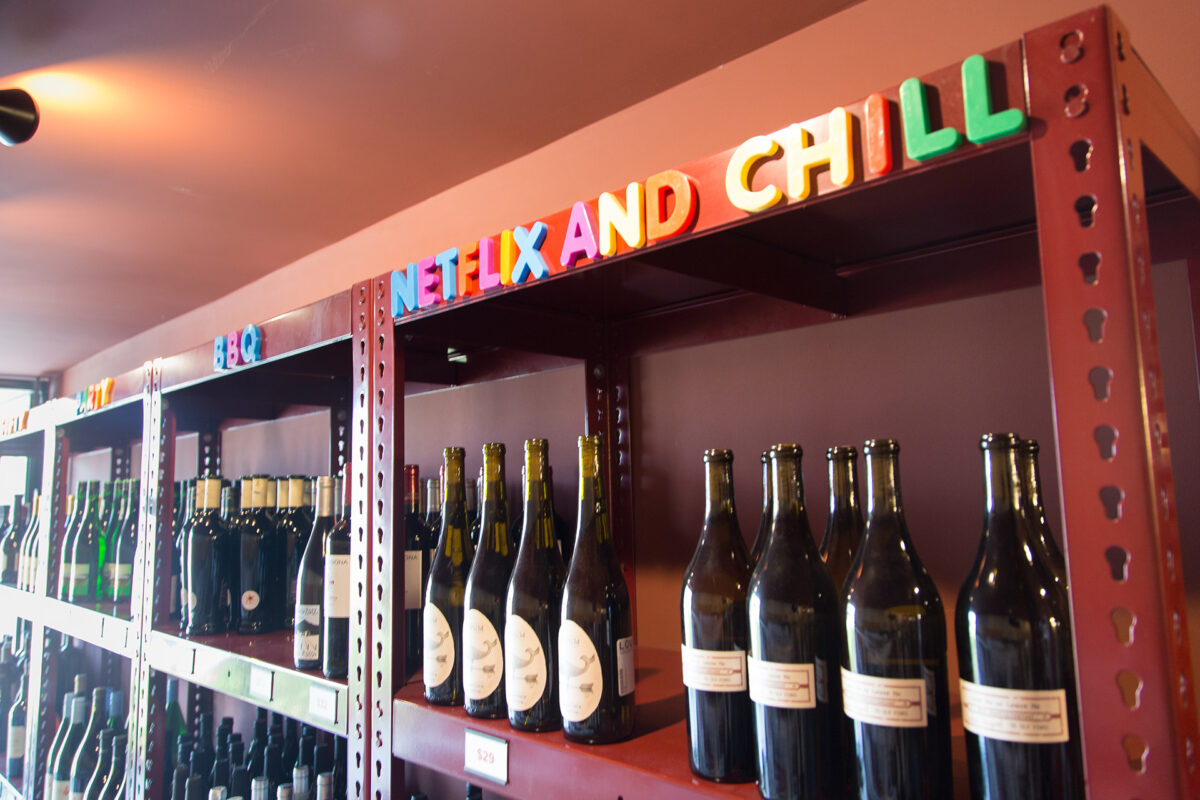
Your shop has these unique organizational structures—where did the idea for the magnets come from?
What’s fun is that we can arrange whenever we want. We just changed “Fireplace” that had some smoky wines to “barbecue”, which works for summer, and there are other wines that can go in there now. We change the rubric, we tweak them every so often.
Probably the most famous (and Instagrammable) is the section called Netflix & Chill. What makes a wine a N&C wine?
Sometimes it’s the name of the wine. There’s a wine we work with by Frantz Saumon called “La Petite Gaule du Matin,” which translates to “the little morning wood”—so that goes in Netflix and Chill. Or it can be as simple as a rosé around Valentine’s Day. It’s a little goofy. It helps us call attention to wines that might not fit somewhere else, and I think it lowers the anxiety threshold for a lot of people to see a taxonomy that’s not geared towards grape variety or country of origin, and perhaps corresponds to the structural component of the wine. A lot of people respond to light-bodied red wine, that makes sense. But Pinot Noir vs Gamay doesn’t make sense. When you have a taxonomy that focuses on grape variety, well, we work with at any given time 150 to 200 different grape varieties. It wouldn’t make sense to have a Pino d’Aunis section—that’s douchey.
I think that sounds awesome.
Well sure, but it only resonates with .2% of the audience. My job is to give people what they might like. It’s not my job to give them something that’s expected—rat in a cage wine. That’s not my job. But at the same time, if the customer is not ready to get their freak on, I don’t give them the freaky wine.
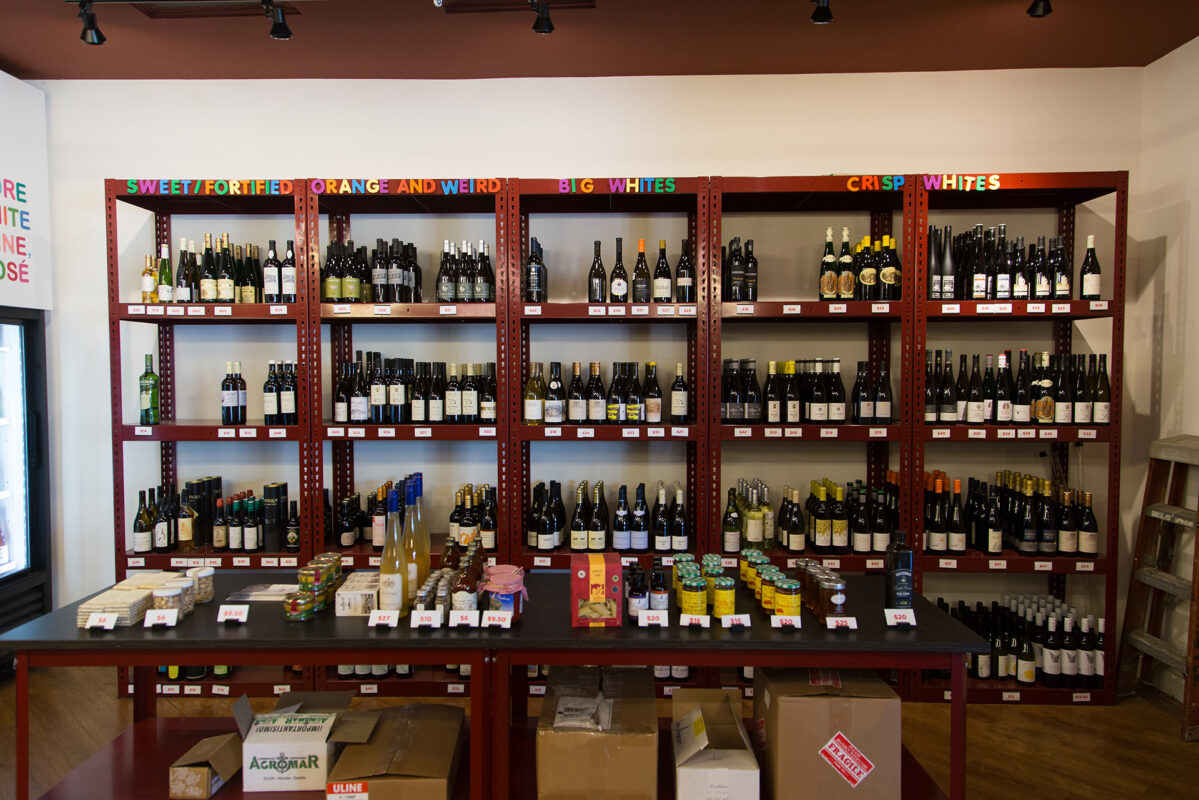
How do you gauge that?
There’s nonverbal cues. And I’ll ask things point blank. “Do you want funky wine? Are you gonna eat?” That’s the most central thing. If somebody asks for a certain type of wine you already know ahead of time they don’t want something freaky. But when people say, “I’m just getting into wine, I’m a beer guy,” that’s a fun job because you can give them interesting wine that tastes like a beer. Try this Lambrusco with carnitas—try it nice and cold and tell me what you think. That’s fun.
You’ve been working around natural wines for a decade, and Lou Wine is a real destination for wine in this style. Are people asking for them more now? Has the market for it changed in LA?
10 years ago, I organized a natural wine week in Los Angeles, and it was like pulling teeth. Nobody wanted to participate. It was a thing a couple of wine buyers knew about it. Today if you did it again it would be a big thing. It’s been a huge shift in terms of the rise of people who came up with cocktails and craft beer. They’re open-minded. They might be interested in trying new things and maybe they’ve only had shitty corporate wine. And then somebody gives them a cloudy pet nat and it’s distinctive and it’s like—oh, there’s wines like that? It resonates. It’s like trying a new beer or cocktail.
I was anxious initially—I thought craft beer and mixology were problematic for natural wine. It’s actually been the reverse: it’s opened people to flavors. And in terms of demographics, in 2014 we didn’t have 30-year-olds, 28-year-olds coming in. We didn’t have them coming asking for orange wine or anything specific beyond maybe a Pinot Noir. That’s really shifted, but I think for millennials, you know, they’re in the same boat as anyone else. They’ve only had shitty industrial wine.
Which is not to say…you could be 45 years old and you’ve only had shitty industrial wines, too, because the gate keepers decided and they keep people away from these wines and they’re wrong. It’s not just young folks waking up to natural wine, it’s all sorts of folks.
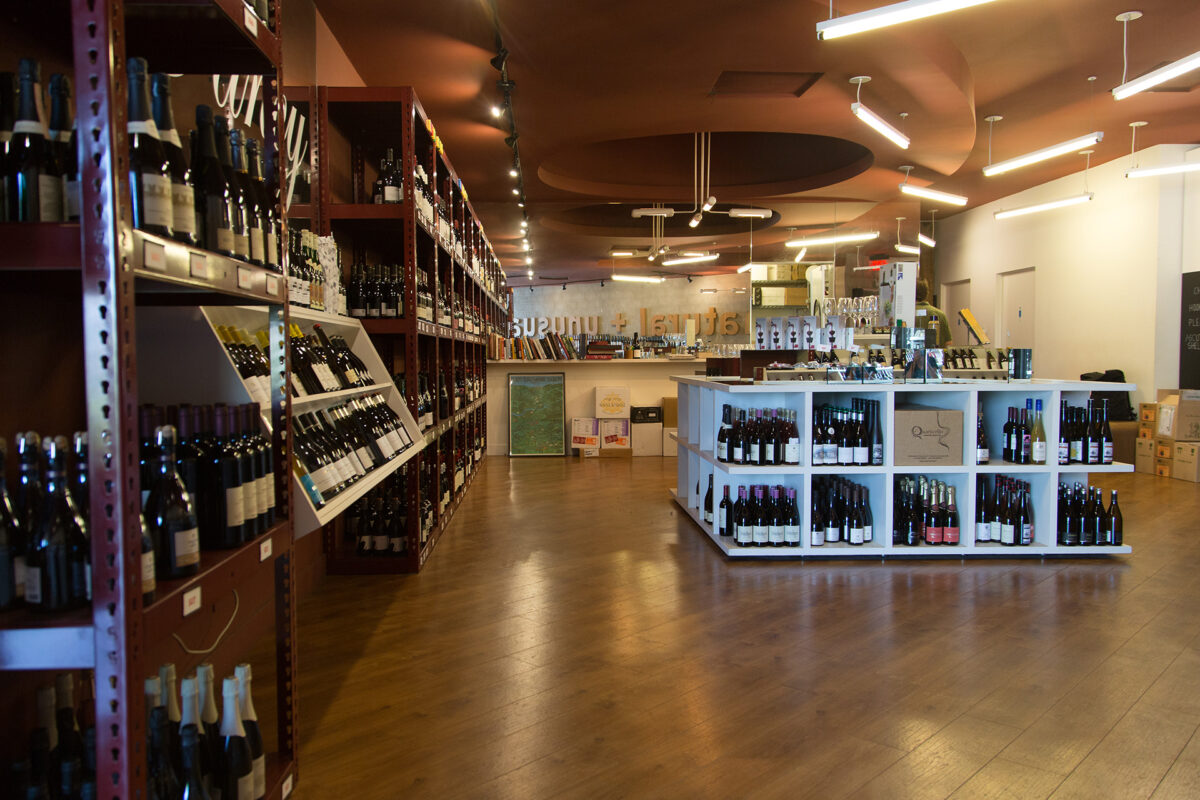
But I don’t agree with the rock star approach. You know, “It’s all about me, I’m gonna blow your fucking mind.” It’s not my job to blow your fucking mind. It’s not about me. I’m a conduit for these wines. And I’m delighted when someone says that wine was fantastic because I got an interesting wine into their lives, and that can support the wines. But I’m not doing this play solo.
On the other hand, if someone says, “What’s rocking your boat, what’s on your toes”—it’s like, you don’t know me. I’m into some weird wines. I don’t think you really want to know these wines; you may, but what I’m interested in is not that narcissistic equation. It’s not about me ever. It’s about trying to be a voice for wines that I think are traditionally made and say something about where they’re from. Anything that brings it back to me as a curator grosses me out.
I get your newsletter and gaze longingly at the wines from afar. It seems like hosting events and tastings is a big part of what you do.
We do tastings every week, and we do it for real-time feedback. Every week we get around 20-40 new wines in the shop and tastings is how we expose customers to the new wines. It’s a great way to learn—if you have 50 people show up to the tasting, and 40 people freak out about a wine, it’s a good sign. It’s a very adult realization that just because you’re head over heels about something doesn’t mean anything else to anyone.
In the wine trade, there are people who say “I have arrived,” or “I have so carefully honed my palate.” I don’t feel that way. There’s a lot of wine arriving right now, you can only arrive yourself if you have blinkers on and ignore what’s happening in the wine world. It’s an exciting time in the wine world.
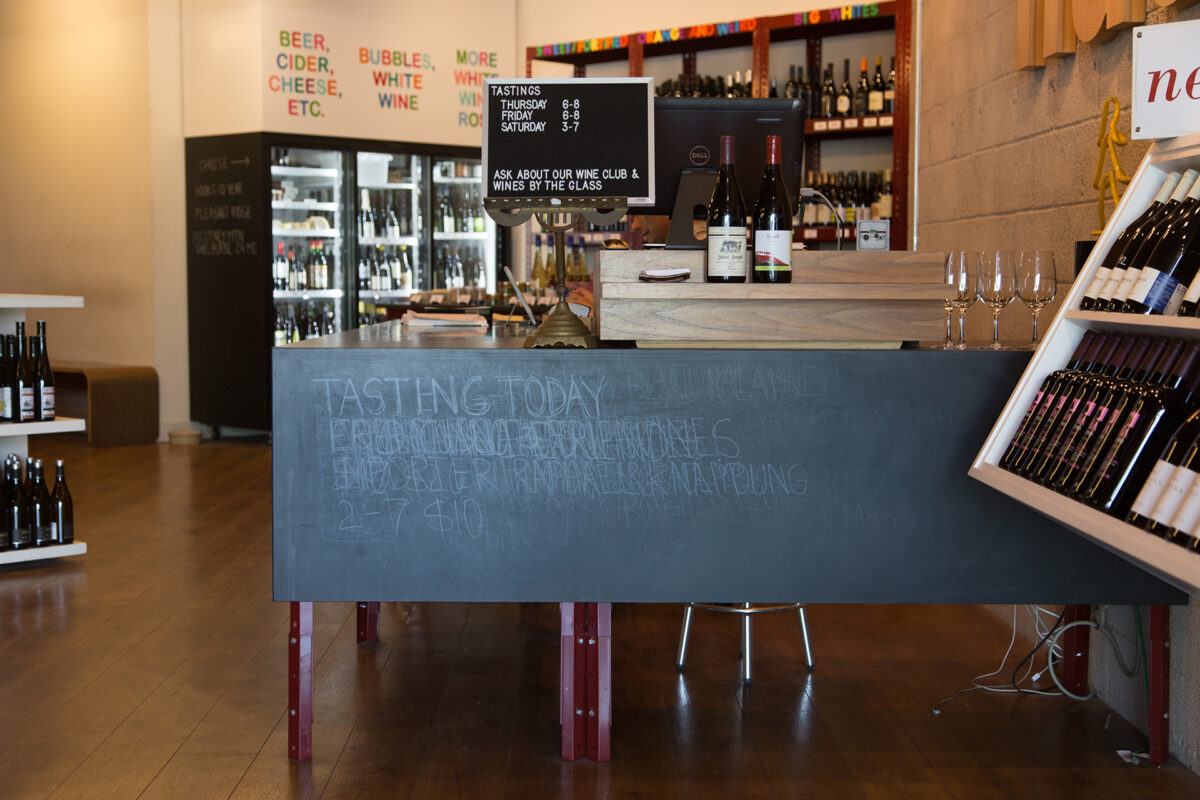
I love doing the winemaker events. We had a great event with Monteraponi, a beautiful traditional Chianti Classico—that event is a perfect example of a wine that’s really funky and really challenges the “brand” Chianti. Outside of folks who are staunch supporters of traditional stuff, there’s a sea of Chianti that is made indifferently, that is not made according to traditional standards, uses international grape varieties, and is technical, boring, and insipid wine that doesn’t tell you anything. The only criteria they meet is a price criteria. But there’s a handful of people that only use the old ways. All wild yeast, some of the wines are fermented in vats and put into large old barrels. That’s how the old timers did it and they did it for a reason. It helps polish the rough edges. And it’s a perfect example of a wine that’s fucked up and I love selling it to people. The wines are delicious, but if all you’ve had are $20 or $40 Chianti Classicos in your life, you try this and it’s like, “Here’s the good stuff.”
Wine culture in Los Angeles feels like there’s some serious momentum behind it in 2017. Are you seeing the same thing?
LA is such a centripetal city. Everything is pushed out. It’s a city in which the downtown doesn’t really matter unless you work or live or go to dinner there. It’s hard to understand what’s happening in our wine culture, because unlike in New York, if I wanted to hang with someone in Beverly Hills after their shift, well, I don’t want to schlep to Beverly Hills and drink and drive home. It strains our collegiality. There’s a lot of delightful wine people in LA who are very knowledgeable but I think what happens with the top rank is, they kind of skill out. They get to a certain point and then there’s nothing you can do, so people become GMs, they leave the wine trade, they shift away from it. But we have some great places here.
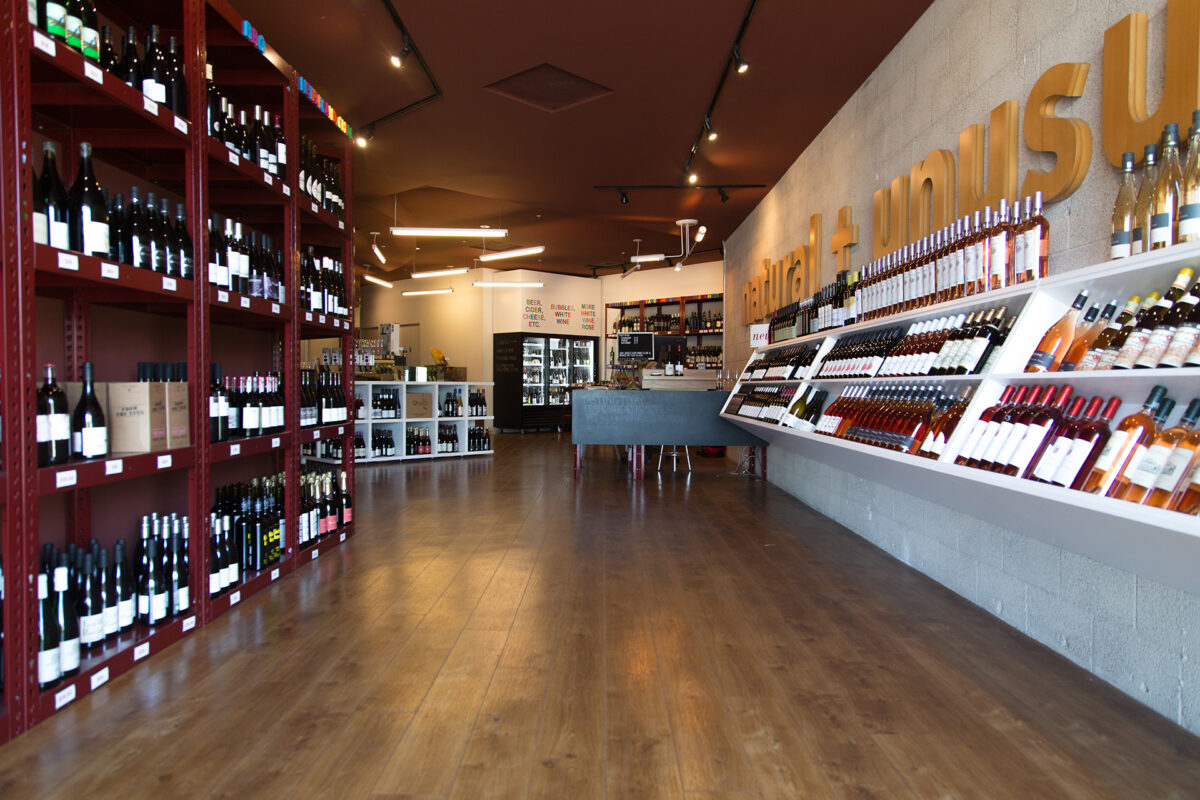
What are some of the places you like?
I think Ryan Ibsen at Bestia does a great job of curating an eclectic list of both Italian and other wines. That place, Bestia, really overdelivers on its promise, and it’s a zoo in there. They’ll do 600 or 800 covers on a busy night. At my restaurant, if we did 130 we were dead, that was it. They overdeliver for a place that is somewhat factory-like in terms of its scale.
In terms of fine dining, I feel really alienated from white table cloth joints so I can’t really comment on that. That’s not how I eat mostly. We had a great meal the other night at Michael’s in Santa Monica. I think the list at Michael’s is selling out the old stock and getting in some groovy wines.
At the same time, I feel really awful about the fragmentation. There’s such a gap in our city between ethnic cultures, it’s hard to make that leap. For example, I was talking to a Korean-American customer who is a regular about doing a buy-out event at their restaurant—to turn each other on to what we’re doing, his regulars and mine. I don’t see that diversity when I go to a trade tasting; instead, I feel that loss. I’m scratching my head and figuring out how we live in this diverse city where people are drinking and living around each other but why can’t we bridge that gap.
Has it happened anywhere yet? Who is out in front on this?
Well, Kris Yenbamroong’s Night + Market is amazing. That’s an example of LA at its best, for bringing together food and wine culture.

Why now? Why is natural wine happening in LA in 2017?
I feel like we live in a moment in which we’re desperate for the mark of the human hand. We live in and navigate through a world of one size fits all commodities. A world of anonymous products. And the result is—and this is very Franklin School—but the pathological side of it is narcissism. And at the same time, the small side of it is, when somebody makes a craft beer it is an expression of their intent and craft and technical prowess. When a bartender makes a fabulous mixed drink, you get to watch them make it right in front of you. There’s the trace of the human hand.
With wine, finding that connection between the maker and the drinker is more challenging because you can visit a winery any given day and what’s happening? “Today we’re fermenting, come back tomorrow. Oh look, there’s a bubble.”
What’s happening is the actual making process is months long, if not years. It’s much harder to expose the touch of the human hand. But with natural wine, these are wines that aren’t so polished necessarily. People pick up on that. And I’m not saying all natural wines aren’t polished, but in general these are wines in which not all the kink has been wired out. It shows a touch of the human hand. It brings us back to the fact that wine is an agricultural product.
And you might resent that! You might wish for a wine to be full-bodied instead of light, but these are wines without recourse, and that’s kind of the point. You get what you get per vintage. And if you can’t de-aciditify, you can’t alkalize or add adjuncts, the wines are going to change and challenge us, and that’s exciting.
Thank you.
Jordan Michelman is a co-founder and editor at Sprudge Media Network, and a contributor to Willamette Week.
Photos by Devin Pedde (@dpedde) for Sprudge Media Network.




